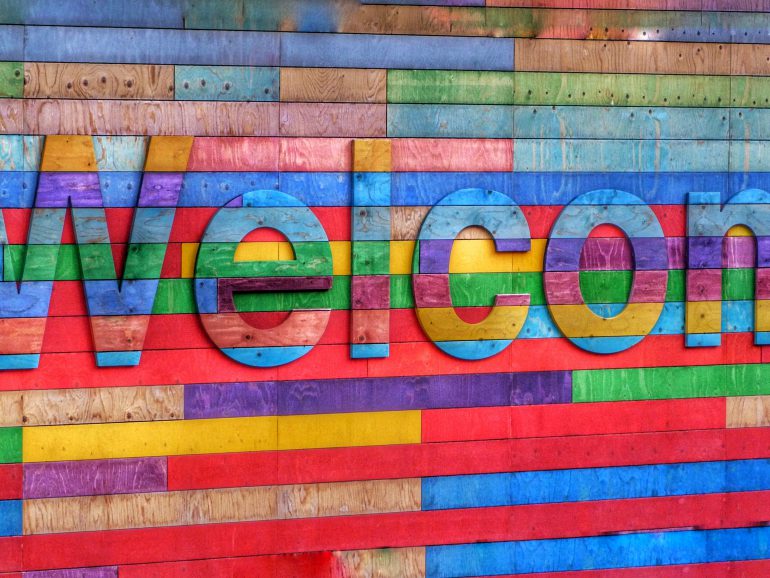What is transition?
Transition to university is a critical period for students as they move from high school to tertiary education, return to study, or join us from any number of other responsibilities. This period can be both exciting and challenging, as students are faced with new academic, social, and personal responsibilities. Kift (2009) highlights the importance of supporting students through transition to ensure their success in university as “everyone’s business”. She advocates for a holistic approach to transition, embedding transition in the curriculum to be supported by the teachers they relate most closely to and aligning it to students’ current circumstances. It is crucial to allow space in the curriculum for social interaction and the development of essential skills such as time management, understanding of the ‘hidden curriculum’ and critical thinking. By investing in the transition process, we can promote student engagement, retention, academic success, and overall wellbeing.
Central to a successful transition is the development of belonging. Belonging is a fundamental human need, fulfilling the desire to connect with others and contribute to society. According to Walton and Wilson (2018, p.624), individuals have an innate drive “to be accepted and included, to be valued members of social groups, and to contribute positively to the lives of others”. This concept has significant implications in education, where a sense of belonging can greatly influence student success across different contexts and demographics. A growing body of research demonstrates the importance of belonging in academic settings (Allen et al., 2018; Korpershoek et al., 2020; Edwards et al., 2022), with students who feel a sense of belonging more likely to achieve positive educational outcomes. The qualities that make the University of Sydney attractive to students – such as its imposing architecture, size, comprehensive curriculum and entry standards – also make it imposing for our students who come from a wide range of backgrounds. Arriving at Sydney without an already established network of friends or strong family support, it is easy for students to feel that they do not matter and do fit in – that they are imposters.
Our students need to know that they matter and fit in. Our own analyses have demonstrated that our students historically report a low sense of belonging to the University and that this deteriorated further during the pandemic. They also show that belonging is strongly correlated with academic success and overall satisfaction and that these links existed before and after the pandemic. In addition, they show that belonging is associated with what happens in the classroom and the central role of the student-educator relationship.
Transition at Sydney
In 2020, as part of the Student Experience Strategy the University of Sydney embarked on a project to integrate intentionally designed activities based on “wise interventions” (Walton and Wilson, 2018) into first-year undergraduate units. This was primarily to ensure that commencing students had opportunities to form relationships with their peers and teachers and to counter imposter syndrome. Funds were provided to pay for tutors to be trained in running the activities. Thanks to feedback from coordinators, tutors, and students over the past three years the activities have been iteratively improved, and we now offer a suite of activities that can be selectively chosen and adapted to the needs of units and their context.
The 2032 Strategy further highlights the importance of a considered approach to transition, in our goal to build our students’ confidence in their abilities, support them in developing clear personal goals, and feel a sense of belonging to the University community. Central to the 2023 Strategy is enhancing the diversity and success of all students. A transformational education is built on a strong beginning, particularly for those from traditionally underrepresented groups.
Given the “stunning level of disconnection” with studies experienced by staff and students in 2022 at Sydney and worldwide, the ongoing effects of lockdowns and the pandemic on our student’s ability to connect socially, the sudden return of all students to campus, the rapid rise in the cost of living and the impact of generative AI, 2023 is proving to be a pivotal year for higher education and our students. Starting well with a renewed focus on transition was essential.
Embedding transition activities into first-year units
Leading into semester 1 2023, faculty and school education leaders, in partnership with Educational Innovation, identified 33 first-year units in which to embed transition activities, with the aim of covering as close to 100% of commencing undergraduate students as possible. Educational Innovation worked with unit coordinators to scope how to customise and adapt the activities to fit their students, individual disciplines and teaching contexts. Across these units, both large and small, 156 tutors, demonstrators, and unit coordinators attended training sessions on implementing our four core transition activities:
- ‘My Journey to Sydney’: educators and students share their educational journeys and reasons for their course choices. This activity works well in the first class of the year and helps staff and students connect as people.
- ‘Co-creating class norms’: students in a tutorial co-design a learning charter to foster a culture of high expectations, trust and accountability. This activity works best in the first tutorial and the charter can be returned to during the semester.
- A values affirmation task: a 5-minute reflection task where students consider and write down their personal values. This simple task can be performed as homework after the first week and has been shown to produce lasting effects on student engagement and outcomes, particularly for students from underrepresented groups.
- Academic integrity discussion: an opportunity for students to discuss integrity scenarios where the answers are less clear cut. Ideal for a class before a large assessment, scenarios are discipline specific but have included situations such as swapping results in the lab, use of generative AI to assist with writer’s block and why we reference.
How did it go?
The workshops included an introduction to the scholarly evidence for the activities, insights into the current student experience, and opportunities to experience the activities as a student. Following the workshops, tutors were asked to complete a questionnaire on their feelings about the training and the activities.
A large majority (88%) of the tutors were confident that the activities would go well in their classroom, and 62 % thought the activities would improve student outcomes; (36% thought they might, and only 2% thought they would not).
As a follow-up to the training and survey, we invited tutors to participate in focus groups in the mid-semester break to let us know how they went with the activities and whether the training had been helpful. Overall, the tutors really appreciated the workshops, in particular, the opportunity to see the activities run and to experience them as students:
The training was super helpful in my teaching
it was useful participating in activities before delivering them
it was helpful to see a model of the activities
Feedback comments respectively from tutors in FMH, FASS, and Science
Tutors also acknowledged the benefit of the activities in helping students navigate their transition to University:
These activities are really important because the university is a big and scary place
Students are working really well together and the norms and values have been really helpful, and they have come together as a group
Feedback comments respectively from tutors in FMH and Science
The focus groups also gave us some ideas on other ways we could deliver the activities and areas where we might like to provide some more ongoing support. We are currently incorporating many of these ideas into the transition resources, and preparing for some follow-up activities.
We will be running more training for tutors in the lead-up to semester 2, 2023.
Tell me more
- More articles on student transition to University at Sydney
- Enrol in the Transition Resources Site
- Although there are units selected for transition, the activities work across all units and year groups. If you’d like to get involved in designing and embedding them in your semester 2 2023 unit, please contact [email protected]






1 Comment